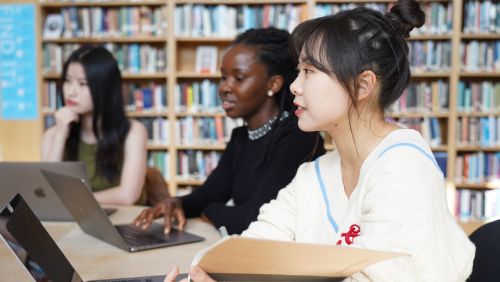
The Reading Pedagogies of Equity Project
Dr Emma Cooper, Fellow in Education at Robinson
And Professor Rachel Heydon, Western University, Canada
Although academic reading is a fundamental requirement for successful participation in higher education with far-reaching implications for equity, supporting equity within academic reading has received little practical and research attention. To generate knowledge to support equity outcomes, including enhanced instructional supports for students, The Reading Pedagogies of Equity Project (R-PEP) - led by Professor Rachel Heydon at Western University in Canada - was created. Phase one has uncovered the numerous junctures in university teaching where equity can be enabled and/or constrained during academic reading engagements. R-PEP created a professional learning programme for university instructors to explore within their real time teaching, strategies for strengthening academic reading pedagogies. Participants in this phase of the study were invited to examine academic reading texts and materials from their teaching alongside researchers and collaborators, to reflect on their own experiences, knowledge and understanding, especially in relation to equity—for example, how the choice of texts might help or hinder learners.
Early findings showed that reading is often taken for granted in teacher education programmes and needs more focused support in both curriculum and teaching. To address this, a new joint study between Canada and England (including Robinson College and the wider University of Cambridge) has been planned. This new research will explore the reading expectations placed on future teachers and what these mean for fair and inclusive teaching practices.
Collaboration is key to the success of this project. We intend to engage with a diverse range of stakeholders to drive meaningful change—especially in the pursuit of social justice. Working across regions will allow researchers to compare how local policies, political climates, and professional standards shape reading practices in teacher education. It is hoped that these international partnerships bring varied perspectives that highlight how geography, identity, and experience influence how learners develop critical literacies—skills that go beyond understanding a text to questioning its deeper messages and assumptions.
To meet the aims of this research, the project will follow teacher education students during the normal course of a week of studies—through interviews, observations, and collecting materials—to better understand the academic reading demands of their daily lives, how they engage with reading and what opportunities exist for developing critical academic literacy. The ultimate goal is to generate new knowledge about how academic reading can support equity in teacher education. Researchers will explore the kinds of texts students come in contact with, what the context asks them to do with these texts, how they make sense of them, how reading connects to social justice, and how local rules and histories (like colonial contexts) influence these practices.
Through the knowledge obtained via this research, it is hoped that we may widen participation opportunities, disrupting exclusionary practices of the past and effectively opening up teacher education to all.
To find out more visit the Reading Pedagogies of Equity Project website.